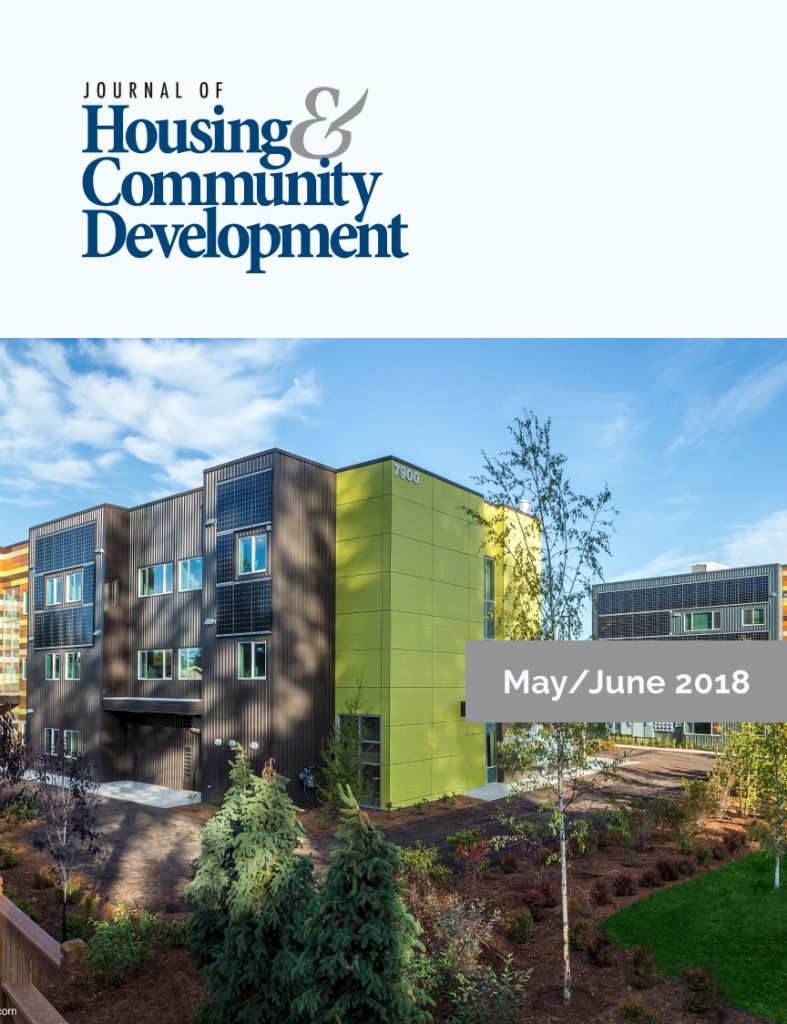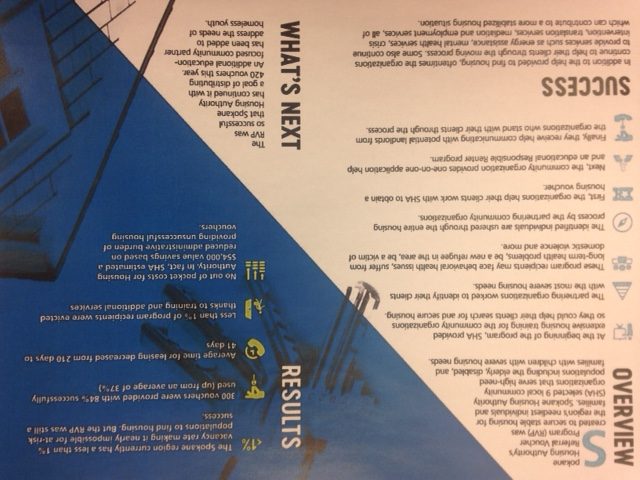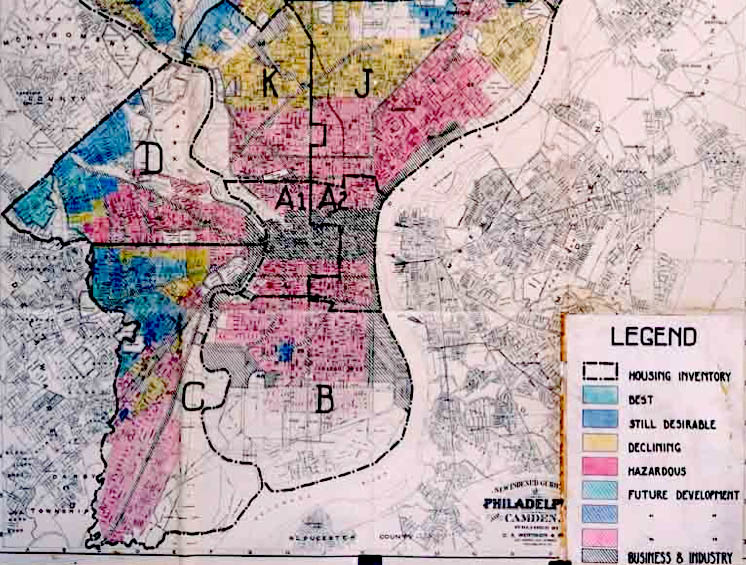Awards of Excellence: Speakers of the House
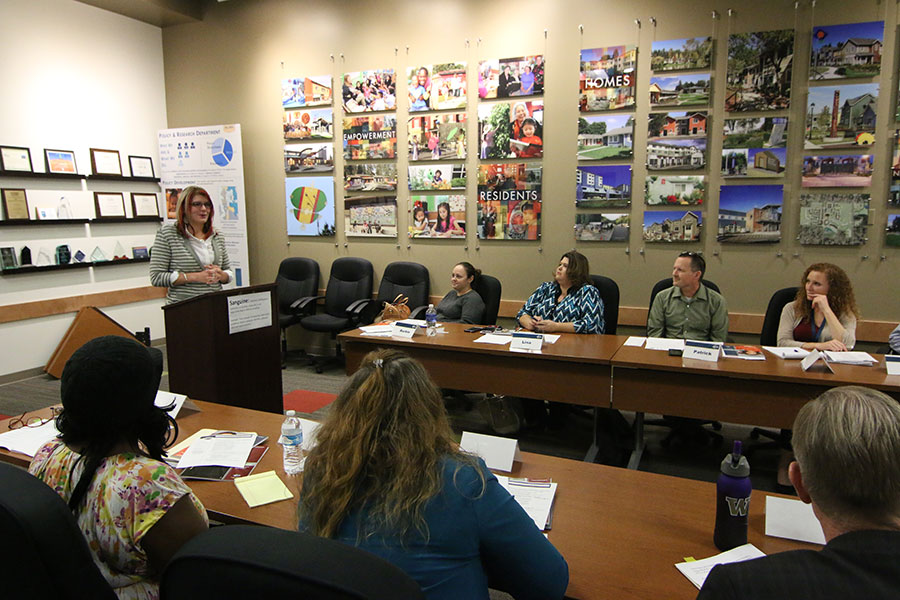
The King County Housing Authority (Wash.) won a 2017 Award of Excellence for its initiative to prepare emerging leaders for future career opportunities within the agency. Nominated from among the NAHRO Award of Merit winners each year, the Awards of Excellence winners are chosen by national juries and honored at the annual National Conference and Exhibition in October. They represent the very best in innovative programs in assisted housing and community development. This agency received an award in the Administrative Innovation category, which includes programs that improve the efficiency or effectiveness of administrative operations or the general functioning of the agency.
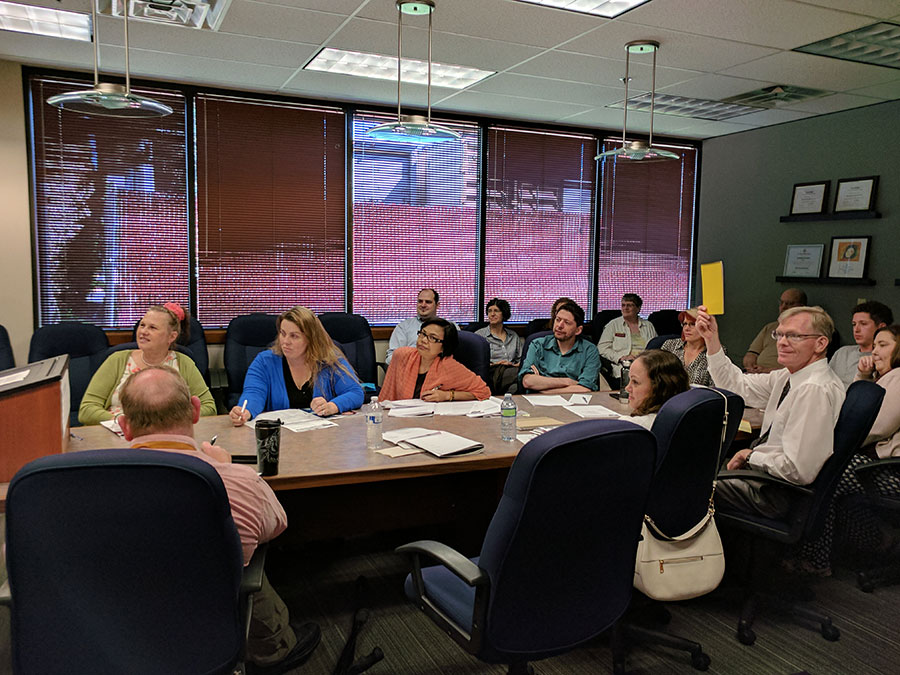
With approximately 20 percent of agency employees reaching retirement age within the next five years, a critical determinant of King County Housing Authority’s (KCHA) organizational future is the degree to which they can retain, train, and advance their workforce. Preparing emerging leaders for future career opportunities has been a challenge for the agency. Although there are many high-quality training programs available for staff to attend, the opportunity to practice and use those skills effectively was minimal. In addition, there was a challenge of how to increase synergy and enhance company culture while being a responsible steward of public funds.
With these critical issues in mind KCHA launched Speakers of the House, an employee-only chapter of Toastmasters, in August 2016. Their pilot program consists of 20 members ranging from Senior Director of Housing Management to Office Assistant, with all officer roles held by front-line managers or individual contributors. Since launching this program, the group has met bi-weekly, and every member has had an opportunity to practice public speaking, leading teams, hosting meetings, and both giving and receiving feedback.
The success of the Toastmasters program was based on a partnership between KCHA senior leadership and the Work Environment Committee (WEC), an internal group of staff dedicated to increasing engagement within the agency. The executive team agreed to have all costs paid by the agency, and actively encouraged participation in other ways. The initial email announcement to all KCHA staff clearly stated that this program was agency-sanctioned, and that if an employee was in good standing, then their direct supervisor’s approval was unnecessary. Time to attend the meetings was also approved by senior staff. These key authorizations provided a gateway for employees who, due to distance or job duties, might not have traditionally participated in a program requiring regular on-site meetings.
Approximately 10 percent of the workforce attended a mock-meeting, which Toastmasters International helped to lead. Their initial involvement and guidance further strengthened the program’s ability to teach the first group of club officers the skills needed to lead a team through Tuckman’s stages of group development (forming-storming-norming-performing).
The increased skillset and camaraderie employees have seen from participation in this program has been immense, and grew exponentially as KCHA moved through the six-month pilot. As a group, the employees have greatly progressed in their ability to organize their thoughts and speak in public. In addition, since this Toastmasters chapter is devoted solely to KCHA staff, members are able to focus their speeches on topics around work-related subjects and programs. This creates an atmosphere of mutual purpose and encourages employees to build relationships within their own organization. Individual success stories abound. During her first speech, one member was so fearful of public speaking that she stopped within her first sentence and was unable to continue. Several other members came up to the lectern and stood by her as a way to offer their emotional support. The speaker was eventually able to finish her speech. Weeks later, she was able to complete her second presentation without assistance. As the meetings progressed, this member has become one of the most perceptive and participatory people in the group. This confidence carries over into her everyday work, and she has reported that her interactions with clients has become more clear and concise since beginning Toastmasters.

Another member of the group has been especially impacted by the Table Topics portion of the meeting. During Table Topics, members are asked a question and are expected to respond for approximately two minutes without any advance notice. “My mind used to just go blank when I was asked a question,” the member said. “I couldn’t even participate in my team meetings. Now I can quickly summarize my thoughts and explain them in a way that I can feel confident makes sense.”
The members of the group that were elected as officers have experienced the largest positive impact in terms of leadership development. The current club president’s working job title is Senior Office Assistant, and in this role she has rarely had the opportunity to practice the leadership skills needed to advance her career. As club leader, she has learned how to take a new team through a vision casting process and support them in taking concrete steps towards achieving those goals. “My confidence has been heightened and I don’t feel like my role within the organization is as minuscule as I once thought it was,” she said. “I feel that I can take on bigger projects, reach for higher roles, and better connect with the current and future leaders of this organization, I am more motivated to keep moving forward.”
In addition, the group has developed a trust and open communication across a wide range of departments and management levels. These connections have reduced the silo effect and increased agency cohesion. As an example, two employees who would not normally interact now team up regularly. Issues that arise in either department can now be answered more quickly and efficiently, which increases KCHA’s productivity and supports both the mission and bottom line.
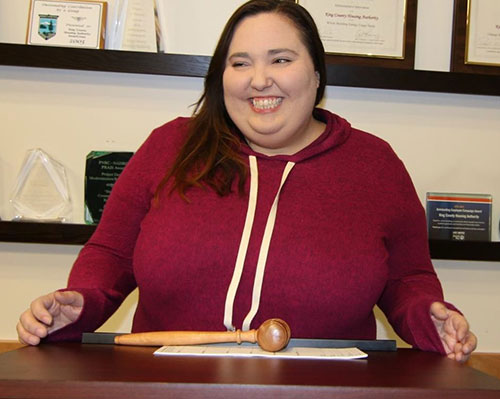
One of the most exciting elements of this program is its low implementation cost. Start-up fees were paid for out of the Human Resources (HR) budget and included a one-time Charter charge, a membership fee of $20 per person, and the first six months’ dues of $36 per member. The Charter charge of $125 also included a New Club packet, which contained a gavel, timer cards, and other materials that the group would need to run effective meetings. Going forward, HR will continue to financially support this program by paying for the ongoing membership dues on a semi-annual basis.
Through this program, KCHA finds and develops emerging leaders among its staff at a reasonable cost of both time and effort.
More Articles in this Issue
News Briefs
People FHLBank San Francisco Names Marietta Núñez Community Investment Officer On February 15, 2018, the…Awards of Excellence: Referral Voucher Program
The Spokane Housing Authority (Wash.) designed a one-year pilot program to collaborate with local agencies…Transition Brings Opportunity: 2017 Regulatory Year in Review
Looking back at 2017, a theme became clear: transition. From a new President and HUD…Meet the 2017-2019 NAHRO Leadership
NAHRO President: Carl S. Richie, Jr., NCC, NAHRO-Fellow Chairman, Board of Commissioners Housing Authority of…Walls and Bridges, Part 2: How Our Past Choices and Current Biases Continue to Shape Our World
What you leave behind is not what is engraved in stone monuments, but what is…Awards of Excellence: Homelessness – Let’s Talk About It!
The County of San Diego Housing and Community Development Services (Calif.) wins a 2017 Award…
